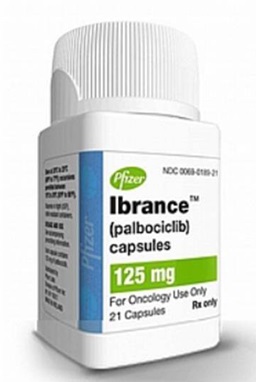Discontinuation or exposure of Pfizer’s Ibrance (ingredient: palbociclib), the first CDK4/6 inhibitor, was not related to the drug’s failure to show additional benefit in combination with endocrine therapy in treating early breast cancer, a study showed.
The study excluded the exposure of Ibrance from factors that caused the failure of early breast cancer treatment. This is likely to support opinions that current CDK4/6 inhibitors will have different therapeutic effects.

The January issue of the Journal of Clinical Oncology (JCO), published by the American Society of Clinical Oncology (ASCO), released the final data from the phase 3 PALLAS trial that evaluated the efficacy of Ibrance in combination with endocrine therapy in early-stage breast cancer patients.
Pfizer had already announced that the PALLAS trial failed in May 2020. In addition, the independent data monitoring committee (DMC) concluded that Ibrance failed to improve invasive disease-free survival (iDFS) and that adding Ibrance to the conventional endocrine therapy did not lower the risk of recurrence and death.
Recently released results are final data of the PALLAS study.
According to the study, iDFS at four years were similar between two groups -- 84.2 percent in people treated with Ibrance plus endocrine therapy and 84.5 percent in those treated with endocrine therapy alone.
Also, there were no significant differences between the two groups in secondary endpoints such as invasive breast cancer-free survival, distant recurrence-free survival, locoregional cancer-free survival, and overall survival. In addition, subgroup analyses did not show any differences by subgroup, the study found.
“PALLAS is the largest adjuvant CDK4/6 inhibitor trial in the curative breast cancer setting. Adjuvant therapy with palbociclib for two years plus endocrine therapy did not improve iDFS or other endpoints,” the research team concluded.
Since 2020 when the failure of the PALLAS study was announced, health experts have expressed mixed interpretations about the study.
This is because Lilly’s Verzenio (abemaciclib), another CDK4.6 inhibitor, showed a therapeutic effect in early breast cancer in the phase 3 MonarchE trial.
MonarchE was also a large-scale study, testing adjuvant Verzenio plus endocrine therapy in 5,637 early breast cancer patients for two years. Again, the trial met the primary endpoint in the median follow-up of 15.5 months.
As two treatments with the same mechanism showed different results in early breast cancer patients, experts released several interpretations, one of which was “high treatment discontinuation rate” in the PALLAS study.
According to the final data of the PALLAS trial, 44.9 percent of the patients could not complete the two-year Ibrance treatment, and most of the patients who discontinued the treatment reported neutropenia.
Another study, released on the same day, said the discontinuation of Ibrance was not directly related to the failure of the PALLAS study.
According to the study, led by Erica L. Mayer at Dana-Farber Cancer Institute, longer Ibrance treatment duration or more exposure of Ibrance did not predict the clinical outcome of patients. Thus, the study said that the results of the PALLAS study were not related to treatment discontinuation rate or inadequate exposure of Ibrance.
Dr. Rinath Jeselsohn echoes Mayer’s point at Dana-Farber Cancer Institute, who made the same point at the ASCO annual meeting in 2021.
At the time, Jeselsohn said differences in therapeutic effects between the PALLAS and the MonarchE studies were likely due to treatment discontinuation rates or differences in the patients’ underlying characteristics.
Palbociclib and abemaciclib were not the same drugs for enzyme inhibitory activity and effects on the cell cycle. These differences seemed to have affected the trial results, she said.
According to Jeselsohn, palbociclib showed selective activity in inhibiting CDK4 and CDK6, while abemaciclib inhibited not only CDK4/6 but CDK2, CDK9, and CDK1 to a lesser extent because of the difference in the molecular structure.
“These differences are demonstrated in the impact on cell cycles,” she said.
As experts started agreeing that therapeutic effects could differ depending on agents in early breast cancer, researchers are paying attention to the upcoming results of the phase 3 NATALEE trial of Novartis’ Kisqali (ribociclib).

